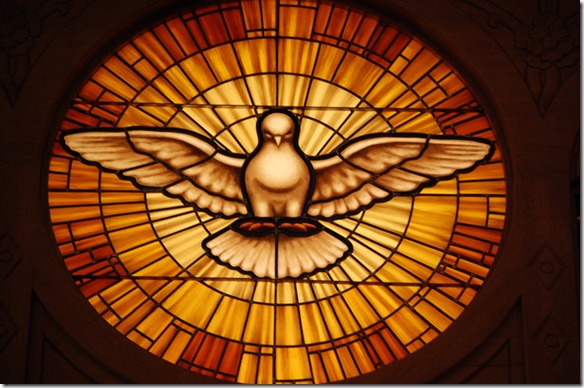Have you ever started receiving a magazines out of the blue? It’s a mystery why this happens in the absence of a subscription. Of course, it’s never a magazine that you actually want, such as The Economist or First Things Journal.
Today, for some strange reason, we started receiving Charisma Magazine. Charisma, as you may know, is a monthly Christian magazine aimed at Pentecostal and charismatic readers. With December’s edition I received a bonus: The Spirit-filled Student’s Guide to Universities, Colleges, Institutes and Bible Schools. On page six, founder and publishing editor Steve Strang explains:
When we formed a “blue ribbon” committee for this project. . . . The result is an exhaustive list of Christian colleges organized regionally and with key information to help potential students. Charisma’s Best not only features interesting articles to help potential students better prepare for college, it was designed to be a key resource for those wanting to be led by the Holy Spirit through their entire journey of finding the right school.
Interesting indeed. It continues, “To help you focus on which schools are either Pentecostal/charismatic or are open to Pentecostal/charismatic theology, we added an icon that is a Holy Spirit dove next to these schools. These are the ones we can ‘Charisma Best’” (30).
The Charisma icon (with rather dramatic flames emanating from the dove’s wings) appears beside such schools as Oral Roberts University, International House of Prayer University (IHOPU), Fire Institute, Christ for the Nations, University of the Supernatural Ministry, Wisdom University, Wheaton College, and Franciscan University of Steubenville. This is where it gets interesting. You might be wondering why Wheaton and Franciscan have the icon.
Here is how the Wheaton College doctrinal statement reads with regard to the person of the Spirit: WE BELIEVE that the Holy Spirit indwells and gives life to believers, enables them to understand the Scriptures, empowers them for godly living, and equips them for service and witness.
Compare Wheaton’s statement with Asuza Pacific, which is quite similar and is lacking an icon: We believe in the present and continuing ministry of sanctification by the Holy Spirit by whose infilling the believing Christian is cleansed and empowered for a life of holiness and service.
Patrick Henry College, on the other hand, is designated by a flaming dove when their doctrinal statement is altogether deficient of the person or work of the Holy Spirit.
Eventually, one is left to wonder whether statements of faith exercised any influence at all upon the selections of the blue ribbon committee. This is especially true in the other dove designation that I mentioned: Franciscan University of Steubenville. As a Catholic school, it doesn’t feature a doctrinal statement on their website. That wouldn’t be a very Catholic thing to do. It does, however, convey its commitment to Catholic thought:
The Catholic intellectual tradition is unparalleled in history in that pursuit [of truth]. Anchored firmly to the magisterium, the sure guide and guardian of truth, the first universities were founded by the Catholic Church, holding to St. Anselm’s maxim, “I believe so that I might understand.”
I think I understand why Charisma chose Franciscan University. I suspect that they wanted at least one Catholic school on their list to affirm the legitimacy of charismatic Catholicism. Indeed, such charismatics are remarkably similar to charismatic Protestants in the form and substance of their prayer life (not to mention that they’re also quite numerous). This is undeniable. However, such a choice further illustrates the extent to which Charisma has chosen to marginalize theology in favor of personal experience (that is, assuming the leadership of Charisma has not become “anchored firmly to the magisterium”).
So what lesson do we learn from all of this? I think of my Assemblies of God classmates from Gordon-Conwell who are still committed, after all these years, to raising the theological bar among their Pentecostal colleagues. God bless them. But let us be careful that we don’t look down our noses as though we’ve outdone Calvin’s Geneva. We all have a margin for improvement in promoting theological vision. Maybe our efforts to improve could begin with the way we communicate the value of theological reflection among the younger generation that is now starting to consider attending a university, college, or Bible institute.





